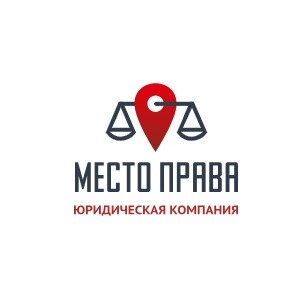Best Credit Repair Lawyers in Omsk
Share your needs with us, get contacted by law firms.
Free. Takes 2 min.
List of the best lawyers in Omsk, Russia
About Credit Repair Law in Omsk, Russia
Credit repair law in Omsk, like in the rest of Russia, involves the process of addressing and rectifying inaccuracies in an individual's credit history. Due to the complexity of the credit reporting system and the potential impacts of having a poor credit score, such as difficulty obtaining loans or high interest rates, it is crucial for consumers to maintain accurate credit reports. Credit repair might involve disputing errors with credit bureaus, negotiating with creditors, or understanding relevant legal protections.
Why You May Need a Lawyer
Individuals may need a lawyer for credit repair in Omsk for various reasons. Legal assistance can be crucial in cases where the credit report contains significant errors, disputes with credit institutions are not successfully resolved, or when there is a suspicion of identity theft or fraud. Lawyers can also help when consumers face illegal harassment by debt collectors or when they need representation in court. Furthermore, a lawyer with expertise in credit repair can navigate the complexities of Russian credit law to help improve one’s credit rating effectively.
Local Laws Overview
The key aspects of local laws in Omsk, Russia, relevant to credit repair revolve around consumer rights and the obligations of credit bureaus and financial institutions. These laws are aimed at protecting consumers from incorrect information being reported and ensuring fair practices in lending. Specific provisions can be found in the Federal Law "On Credit Histories" which regulates the activities of credit bureaus, the rights and obligations of creditors, and the rights of borrowers regarding their credit history. In addition, the Civil Code of the Russian Federation contains articles that protect consumer rights and personal data, which can be relevant in correcting credit report errors.
Frequently Asked Questions
How can I access my credit report in Omsk, Russia?
To access your credit report in Omsk, you can request it directly from a Russian credit bureau. Individuals are entitled to one free report annually from each credit bureau.
What should I do if there are errors on my credit report?
If you find errors on your credit report, you should immediately contact the credit bureau that issued the report and submit a dispute. If the bureau's investigation does not resolve your concerns, seeking legal advice may be your next step.
Can a lawyer help with removing negative information from my credit report?
A lawyer can assist in disputing inaccuracies on your credit report, but negative information that is accurate and verifiable cannot be removed legally until it ages off the report naturally after a certain period typically set by the law.
How long do negative items remain on my credit report in Russia?
Negative credit information typically remains on your credit report for seven years in Russia, although this period may vary depending on the type of information and legal judgments.
Is credit repair legal?
Yes, credit repair is legal, and it involves ensuring that your credit report information is accurate and fair. However, promising to remove legitimate negative information from a credit report is against the law.
Can errors on my credit report affect my job prospects?
Yes, employers in Omsk may request a credit check as part of the hiring process. A poor credit history may affect your job prospects, particularly if the job requires financial responsibility.
What types of legal violations should I watch out for from debt collectors?
Debt collectors must follow specific rules and regulations. Violations can include harassment, attempting to collect additional fees or amounts not specified in the contract, and making false statements about your debt.
How can identity theft affect my credit, and what legal steps can I take?
Identity theft can lead to fraudulent accounts being opened in your name, damaging your credit. Russian law provides for the protection against such crimes, and you should report any suspected identity theft to the police and the credit bureaus immediately.
Can I repair my own credit without legal help?
You have the right to dispute errors in your credit report on your own. However, understanding the intricacies of the law and dealing with financial institutions can be challenging, which is why legal advice might be beneficial.
What does the credit repair process typically involve?
The credit repair process generally involves obtaining your credit report, identifying any inaccuracies, disputing those errors with the respective credit bureau or creditor, and following up on the disputes to ensure they have been corrected.
Additional Resources
For further assistance in the area of credit repair, individuals can contact the Central Bank of the Russian Federation, which regulates financial institutions, or the Federal Financial Markets Service. Additionally, the Russian Association of Credit Bureaus can be a helpful resource regarding credit ratings and rights.
Next Steps
If you need legal assistance in credit repair in Omsk, the first step is to gather all relevant financial documents and credit reports. The next step is to contact a local lawyer who specializes in credit law. They can offer personalized advice and representation, helping to dispute inaccuracies and improve your credit rating within the bounds of Russian law.
Lawzana helps you find the best lawyers and law firms in Omsk through a curated and pre-screened list of qualified legal professionals. Our platform offers rankings and detailed profiles of attorneys and law firms, allowing you to compare based on practice areas, including Credit Repair, experience, and client feedback.
Each profile includes a description of the firm's areas of practice, client reviews, team members and partners, year of establishment, spoken languages, office locations, contact information, social media presence, and any published articles or resources. Most firms on our platform speak English and are experienced in both local and international legal matters.
Get a quote from top-rated law firms in Omsk, Russia — quickly, securely, and without unnecessary hassle.
Disclaimer:
The information provided on this page is for general informational purposes only and does not constitute legal advice. While we strive to ensure the accuracy and relevance of the content, legal information may change over time, and interpretations of the law can vary. You should always consult with a qualified legal professional for advice specific to your situation.
We disclaim all liability for actions taken or not taken based on the content of this page. If you believe any information is incorrect or outdated, please contact us, and we will review and update it where appropriate.









